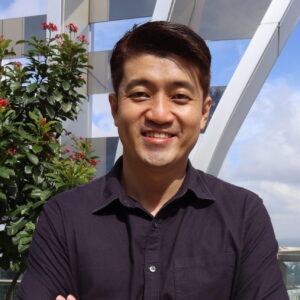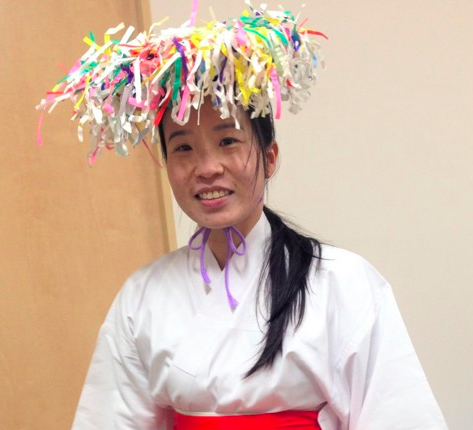Why Japanese Studies?
The introduction of Japanese Studies at the National University of Singapore (NUS) was first considered by the then Singapore Prime Minister Lee Kuan Yew in 1979 during a meeting with his Japanese counterpart, Prime Minister Ohira Masayoshi. The proposal grew out of a wider initiative among Singapore's leadership at the time to "Learn from Japan'' in recognition of Japan's status as Asia's first "economic superpower."
Since then, the Department continues to stand firm in its belief since 1981 that the study of Japan will continue to stay relevant. From language and tradition, to politics and economics, we continue to nurture young and promising Japan specialists who contribute domestically and globally.

Curriculum
Single Major [B.A. (Hons)]
To major in Japanese Studies, students need to:
Pass at least 60 units of JS courses or JS-recognised courses or LAJ courses which include the following:
- JS1101E
- JS2101
- JS3101
- LAJ1201 (Note 1)
- LAJ2201 (Note 1)
- LAJ2202 (Note 1)
- LAJ2203 (Note 1)
- LAJ3201 or LAJ3203 or LAJ3202 or LAJ3204 or LAJ3205 (Note 1)
- a minimum of 36 units at level-3000 (including JS3101 and LAJ3201 or LAJ3203 or LAJ3202 or LAJ3204 or LAJ3205) or higher, with:
i. a minimum of 20 units at level-4000 or higher
ii. a maximum of 1 level-5000 JS course (subject to department's approval) - maximum of 8 units of JS-recognised courses
Note 1: Students who have been given a waiver from LAJ course(s) should read JS course(s) to make up the minimum units required.
Note 2: LAJ4203 and LAJ4205 cannot be counted towards JS major requirements.
Second Major
To major in Japanese Studies, students need to:
Pass at least 40 units of JS courses or JS-recognised courses or LAJ courses which include the following:
- JS1101E
- JS2101
- LAJ1201 (Note 1, 2)
- LAJ2201 (Note 1, 2)
- a maximum of 16 units from LAJ level-1000 to level-3000 (including LAJ1201 and LAJ2201)
- a minimum of 12 units at JS level-3000 or higher
- a maximum of 8 units of JS-recognised courses
Note 1: Students with JLPT N3 and above may be waived from these LAJ course(s).
Note 2: Students who have been given a waiver from these LAJ course(s) should read JS/JS-recognised/LAJ course(s) to make up the minimum units required.
Minor
Pass at least 20 units of JS or JS-recognised or LAJ courses, which include the following:
- JS1101E
- a minimum of 4 units of JS modules at level-3000
- a maximum of 8 units (in total) of the following:
i. LAJ courses
ii. JS-recognised courses
Job Ready
The Department of Japanese Studies educates graduates who based on a strong knowledge of the Japanese language can understand and interpret Japan in its complexity and diversity. Students participate in programs in Japan and work with lecturers who are experts in their respective fields and thus provide a current and relevant education. This opens employment opportunities with:
- the large number of Japanese companies in Singapore with regional headquarters as well as plants, logistics facilities or retail stores. Especially, Japanese companies often look for Japanese language skills and an understanding of Japan first and from there are willing to train young employees.
- many non-Japanese companies that do business with Japanese companies in Japan and in the region.
- headquarters of Japanese companies in Japan that are looking to internationalize their operations in Japan from within. Recently this has become a popular choice among our graduates with specialized recruitment fairs being conducted in Singapore.
- ministries and statutory boards that deal with Japan or need knowledge about Japan. Every year we have students joining the civil service.
- new media or entertainment companies that localize products for markets outside of Japan or cover the Japanese market from Singapore. Here graduates get to combine their interests and training in popular culture with careers in this industry.
Of course, we also often see a combination of the above. Graduates might start their careers with a two-year period of teaching or working for a local town administration in Japan or by joining a company in Tokyo, might then come back to Singapore to work in a Japanese company, and might finally use this experience to join one of the major new media companies or even start their own business. We believe that studying a new country and a new language in its complexity and diversity and being exposed to new environments equips our graduates with a strong foundation in intercultural understanding and interpretation to pursue varied, meaningful, and long-lasting careers.
Admissions
There are no pre-requisites or qualifying tests. The Department welcomes students who show a keen interest in the subject. Students are not expected to have studied the Japanese language and for those who have, placement tests will be conducted to enable them to pursue language modules appropriate for their level. Students with JLPT levels 4, 3, 2 or 1 or GCE O, AO or A levels Japanese language or a pass in the placement test will be granted waivers. Do note that all the language modules are offered by the Centre for Language Studies.
For admission into the Faculty of Arts and Social Sciences itself, please refer to Undergraduate Programmes at Faculty of Arts and Social Sciences.
Why CHS?
The College of Humanities and Sciences (CHS) is the enhanced undergraduate experience for students of the Faculty of Arts & Social Sciences (FASS) and the Faculty of Science (FOS) at the National University of Singapore.
Scale of Impact
Taps and builds on the research expertise of two of the largest and most established faculties in Singapore.
Deliberate Curriculum Curation
A distinct interdisciplinary approach that emphasises the ability to draw connections, discover links and connect insights across disciplines.
Unparalleled Flexibility
Offers greater choice and unparalleled flexibility to pursue breadth and depth from more than 1,000 modules per academic year.
Testimonials

Tan Xuan Hui
Japanese Studies
Why major in Japanese Studies?
Admittedly, I didn't think much about career prospects when deciding on a major. My thought process mainly followed the logic of: ‘If I was going to study something for 4 years, would I want to study something I have zero interest in and suffer in an industry I have no interest in, or would I rather study something that aligned with my interests and at the very least enjoy my 4 years in university before thinking about career prospects?’ The latter ended up dictating my choice, and considering I already possessed great passion and interest over all things Japan, I thought why not try it out? So here I am!
What has been your biggest takeaway from your classes so far?
One of the few things I find that my major has equipped me with is the ability to think critically and how to communicate my thoughts, not just to an informal audience but to audiences which the topics may involve. In my time under FASS and Japanese Studies, many of the insights I've gained have been extremely enlightening, opening me up to new perspectives that I've never considered, and to also reevaluate pre-existing systems that perpetuate in our current social environments.
In light of that, I feel like I've developed a great sense of being comfortable to challenge the uncomfortable, exploring new things that may not necessarily align fully with my interests but attempting to broaden my perspective to see the intersectionality of different disciplines, along with how such insights can influence the manner in which we all distinctively perceive the world. This critical and cultural literacy, I hope, could carry towards a potential career pathway that would allow me to facilitate greater bilateral exchanges between countries built under robust mutual understanding and acknowledgement of different cultures.

Benjamin Goh
Japanese Studies
Why major in Japanese Studies?
Japanese Studies is one of the few departments offering multiple opportunities to travel (to Japan). You get to pick up a new language, a great skill to have, and you also gain critical perspectives on Japanese culture beyond the stereotypes that popular culture tends to feed us. For me, the best part of it is that the cohort is usually small, so the community is tightly-knit since we all have similar interests.
What has been your biggest takeaway from your classes so far?
Japanese proficiency and critical thinking skills aside, I think my biggest takeaway really turned out to be my close friendships in this department. I still keep in touch with even the seniors who have graduated. Of course, that is not to say that the former is absent. Japanese Studies gives you all of that as well. Most of our exposure to Japan comes from the media, often which generalises and/or exaggerates the country and its people. My classes with Japanese Studies have given me both theoretical and practical experience, developing key life skills such as inter-cultural communication.
Er-Kai Wong
Sumitomo Mitsui Banking Corporation: First Vice-President of Global Trade Finance Department
Japanese Studies '06
What skills did you pick up at FASS that helped you in the working world?
As a student of FASS, I learnt how to quickly analyse and synthesise complex issues and present my views into very clear and concise arguments. This has helped me as a working adult where being able to put my point across to clients or internal stakeholders in a concise manner is key to quickly close deals and transactions. As a Japanese Studies major, I also acquired business language skills and a strong understanding of Japanese business culture to help me effectively navigate as a banker in a major Japanese financial institution.
What do you think is the value that FASS can bring to prospective students?
FASS' multidisciplinary approach to its education programs helps student thrive in an evolving work environment. It encourages students to not be scared of trying out new things and learning new disciplines in order to acquire more knowledge and skillsets. There are also many opportunities for students to gain global insights and experiences through various scholarships, internships and student exchange programmes. The FASS experience equips students with confidence and the right mindset to face the challenges of the working world.


Carolyn Pang
Ph.D. candidate, Columbia University & Research Associate at Bukkyo University, Kyoto
Japanese Studies '06 (B.A. Hons) and '10 (M.A.)
“My days in JS were filled with adventures of all kinds. I participated in the summer language and study exchange programs where I interacted in Japanese with international students and dived into various cultural activities such as tea ceremony, ikebana, and kimono dressing. I learnt shamisen and how to survive earthquakes and typhoons, binged on food at matsuri festivals, visited many Shinto shrines and Buddhist temples, climbed Mount Fuji, cheered at sumo tournaments and baseball matches, and fell in love with noh performances and Japanese gagaku court music. You can say that my continued fascination with the diversity and complexities of Japanese culture throughout this past decade was nurtured by my JS experience."
"I am currently in Japan doing my dissertation research on the Izanagi-ryū, a folk religion that is still practiced in contemporary Kōchi, Shikoku. My fieldwork allows me the invaluable opportunity to interact with local communities and to conduct first-hand observations and recording of important ritual performances, most of which are dying out due to the lack of ritual practitioners and rapid depopulation of the region.”
Tan Seng Chai
Chief Corporate and People Officer, CapitaLand Group
"It's a new normal we live in, and there are critical attributes the next-generation workforce must possess in order to thrive, including the willingness to learn, ability to innovate, and high adaptability. CapitaLand recognises this and proactively collaborates on opportunities that encourage the development of these traits. That is why we're supportive of the curriculum at NUS College of Humanities and Sciences. Its focus on interdisciplinary education coupled with experiential and problem-based learning will allow future-ready CHS graduates to handle a variety of workplace scenarios across different disciplines better, and put them in good stead to ride the waves of the future of work."

The Faculty of Arts and Social Sciences, National University of Singapore (NUS) is committed to environmental sustainability.
This e-brochure is part of our sustained effort to reduce waste and foster a culture of care for the environment among the NUS and broader community.

